Creation Corner
Abiogenesis: not so fast
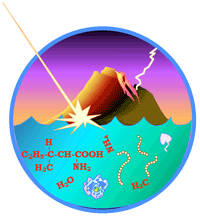
Evolutionists, since Darwin, have based their assumption of a God-less origin of life on abiogenesis. That is, they hold life began from non-life. Now a professor of physics thinks he can show, not exactly how that happened, but that the universe bound it to happen. Even some of his fellow secular scientists find that hard to believe. But even they won’t ask themselves an obvious question he missed.
Professor of abiogenesis?
Meet Jeremy L. England, Professor of Physics at the Massachusetts Institute of Technology. Like Erwin Schrödinger before him, he knew living systems must stay organized, and organize certain chemicals they take in, even as their surroundings disorganize. Any closed or especially isolated system disorganizes over time. The Second Law of Thermodynamics tells us this. Scientists have a name for the “state property” that measures this disorganization. They call it “entropy,” from the Greek preposition “en-” meaning “within” and the noun “tropos” meaning a way of doing things or even a way of life. In other words, scientists say, “Systems disorganize because that’s the way things happen.”
Before moving forward, let us define our terms. System means any group of things that stand together. Two things exist when one treats any system: the system itself, and the surroundings. Isolated systems do not exchange matter or energy with their surroundings. Closed systems may take energy from the surroundings, or give it back. Open systems may gain or lose energy, matter, or both.
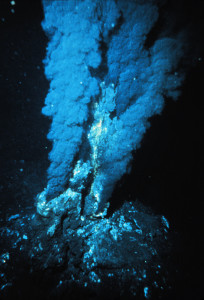
Black smoker in the Mid-Atlantic Ridge. Some scientists suppose this is a source of the primordial soup from which life arose from non-life. Photo: P. Roma/NASA
Any living thing is an open system. The earth itself is also an open system. The sun shines on earth all the time, and comets and meteors fall into it.
Dr. England recognizes the first principle of what happens to energy: it wants to dissipate. And like any spilled liquid, it will follow the path of least resistance when dissipating. Dr. England suggests certain kinds of molecules, with a heat bath (either ocean or atmosphere) to surround them and an outside energy source (like the sun) to drive them, will self-organize to create that path of least resistance. Under the right circumstances, those molecules will then self-replicate.
Dr. England treated two kinds of problem in his paper: self-replicating nucleic acids, and bacterial cell division. Concerning nucleic acids, he concluded RNA, not DNA, formed first in the “primordial soup” (or “biological ylem”) out of which, as he supposes, life arose from non-life.
Dr. England published a detailed mathematical model and argument in the Journal of Chemical Physics nearly two years ago. (See also here.) He also has lectured on the subject around the world. (The video shows him giving one of these lectures.) More recently, Natalie Wolchover at Quanta magazine interviewed England, and several of his supporters and critics, for this article. (Scientific American and Business Insider reprinted this article in the past week.)
Reaction
Everyone, supporter or critic, recognizes one thing above all. Jeremy England claims to have the secret of abiogenesis. Not only did it happen; Dr. England insists it had to happen. He specifically told Ms. Wolchover:
You start with a random clump of atoms, and if you shine light on it for long enough, it should not be so surprising that you get a plant.
He even said as rocks roll downhill, so life will always arise from non-life, under the right kind of sun and in the right kind of “heat bath.” To back up the idea, he pointed to other examples of highly organized objects in the wild. Most notably, he pointed to snowflakes. But perhaps he would cite any kind of crystal or polymer as examples proving his point.
[ezadsense midpost]
He hasn’t convinced everyone, as Ms. Wolchover found out. One critic pointed out England offers speculation, not experimental results. And the supporters of his work show, by their remarks, they want him to convince them. Or they want to convince themselves he has found the “Holy Grail” of evolutionism: the secret of abiogenesis. Some have proposed to test his ideas. But they want to test them on already living things. No one proposes any experiment to see whether life would arise on its own by shining a light on a “random clump of atoms,” as England described.
Walter T. Brown, of the Center for Scientific Creation, scoffed at England. In an e-mail today, he wrote,
This is one of the craziest ideas I have ever heard of. The obvious problems include: (a) life has irreducible complexity, and (b) the information content of DNA.
In other words: systems have more than matter and energy. They also have information. And no system can self-inform. Brown, in his work In the Beginning: Compelling Evidence for Creation and the Flood, has listed many propositions Dr. England must overcome. Among them: life comes from life, not from non-life. That might seem trivial. But: no one has ever observed anything as complex as a protein arise spontaneously even from an amino acid soup. (Nor has anyone yet found, on any celestial body, any form of life oe can say without dispute came spontaneously from that body or other body other than earth.)
How scientific is this?
How complex is that “irreducible” part? Consider this: any molecular biologist or biochemist describes four kinds of structure of any protein:
- Primary structure: the amino acid sequence.
- Secondary structures: helical or pleated-sheet layouts these acid chains form from their first folding after something assembles the chain.
- Tertiary structure: the relationships among these helices, pleated sheets, and other objects the chain can form.
- Quaternary structures: one protein molecule rarely works alone, and often works closely with other proteins.
Even the primary structure requires information. A string of capital A’s has very little information. But a sentence like
The quick brown fox jumped over the lazy dog
has order, structure, and parts of speech. It also tells you something that happened, or sometimes asks you a question, gives you an order, or asks a favor of you.
Dr. England’s theory must jump an even simpler obstacle. He proposed molecules would organize themselves in a way to dissipate energy more rapidly. If that were true, the molecules of a dam holding back river water in a lake, might open their own channels to let the water out! How useful would the dam be then? Why even bother building one?
Perhaps Dr. England has added to our understanding of the physics and thermodynamics of living things. Perhaps he can show why some mutations might happen faster than others. He cannot show how something complex can “build itself” from simpler raw materials. Merely because a new way of organizing matter can pass energy more quickly, does not show the matter will organize itself that way if nothing, and no-Body, interferes with it.
Reprinted from examiner.com
[ezadsense leadout]
Terry A. Hurlbut has been a student of politics, philosophy, and science for more than 35 years. He is a graduate of Yale College and has served as a physician-level laboratory administrator in a 250-bed community hospital. He also is a serious student of the Bible, is conversant in its two primary original languages, and has followed the creation-science movement closely since 1993.
-
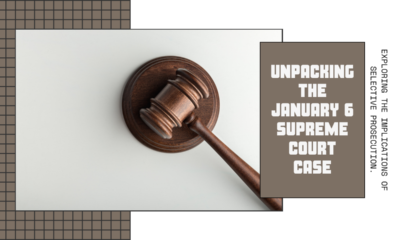
 Executive1 day ago
Executive1 day agoJanuary 6 case comes down to selective prosecution
-

 News1 day ago
News1 day agoRolling the Dice on Republicans: Has the Right Become Delusional?
-
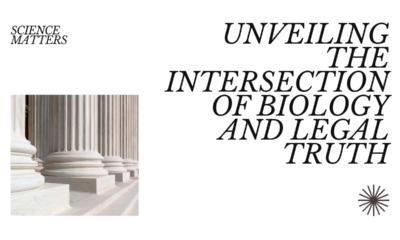
 Civilization1 day ago
Civilization1 day agoBiology, the Supreme Court, and truth
-
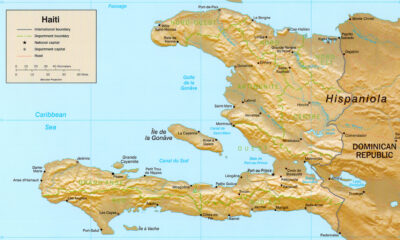
 Civilization12 hours ago
Civilization12 hours agoPresident Biden Must Not Encourage Illegal Mass Migration From Haiti
-

 Executive14 hours ago
Executive14 hours agoWhy Fatal Police Shootings Aren’t Declining: Some Uncomfortable Facts
-

 Entertainment Today15 hours ago
Entertainment Today15 hours agoWaste of the Day: Throwback Thursday: Millions Went To Video Game ‘Research’
-

 Guest Columns13 hours ago
Guest Columns13 hours agoWhat Was Won in No Labels’ Crusade
-

 Constitution13 hours ago
Constitution13 hours agoEquality Under the Law and Conflicts of Interest in New York













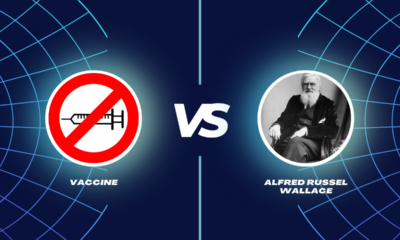

[…] from examiner.com and from Conservative News and […]
There’s no point reading beyond the first sentence in this article, because you have *yet again* linked evolution to abiogenesis.
I’ll be as clear as possible: there is no link between evolution and abiogenesis.
There just isn’t. It doesn’t matter how much you want to claim one implies the other – the fact is that there is no link.
Even if some version of god appeared and stated it was responsible for the first moment of life, it would have no bearing on our understanding of evolution.
I’m not going to bother arguing beyond this point because it’s been done to death. But you really, really need to learn that these two different strands of thought are completely separate.
And I will be equally clear:
You and all those like you, who try to cut abiogenesis out of the Grand Evolutionary Paradigm, are lying.
And what’s more reprehensible, you are behaving in a cowardly way.
What can evolve that does not exist?
And why do others, having more courage than you have, refer to abiogenesis as “chemical evolution”?